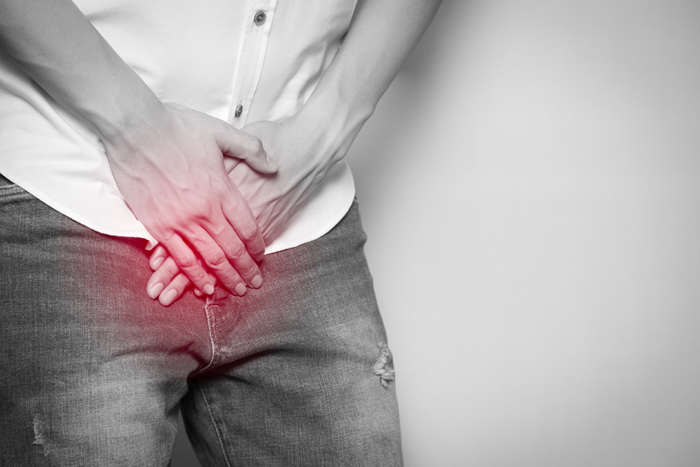Urine Incontinence Treatment & Diagnostics in Tardeo, Mumbai
Urine Incontinence
An overview on Urine Incontinence
Urinary Incontinence, in simple terms, refers to the loss of control of the bladder. This is a widespread problem that many individuals feel embarrassed about. The criticality of this condition entirely varies from occasional leaking of the urine on sneezing or coughing to having a continual urge to urinate suddenly without having any control to wait to get to the toilet in time.
This condition occurs much more frequently as you age. However, it is not caused due to aging. If you’re experiencing urinary incontinence to an extent where you’re unable to perform your everyday activities, you might want to consult a doctor at the latest. Here is everything you need to know about this condition.

Symptoms of Urine Incontinence
Occasional and minor urine leakage is a common condition faced by many people. In rare cases, you might lose moderate amounts of urine more regularly. Given below are some of the symptoms of urine incontinence.
- A sudden and sting urge to urinate
- Leaking urine while performing regular activities like bending, coughing, lifting, and exercising.
- Bed-wetting
Types of Urinary Incontinence
There are several types of urinary incontinence. Some of the common types include-
- Urge Incontinence
- Stress Incontinence
- Nocturia
- Functional Incontinence
- Overflow Incontinence
- Mixed Incontinence
Causes of Urine Incontinence
Incontinence is recognized as a temporary condition caused by urinary tract infection, vaginal infection, intake of certain medications, or constipation. In some cases, it may also be caused due to a chronic condition. Here are the common causes of this condition.
- Side effects from surgery
- Overactive bladder muscles
- Nerve damage that impacts bladder control
- Weakened pelvic floor muscles
- A limitation of disability that makes it hard to make it to the washroom in time.
- Interstitial cystitis
- Obstruction
- Enlarged prostate, prostate cancer, benign prostatic hyperplasia in men
- Pregnancy, menopause, childbirth, or hysterectomy in women
- Neurological conditions such as stroke, multiple sclerosis, or Parkinson’s disease
When to see a doctor
Urinary incontinence is an embarrassing condition for many due to which you might feel uncomfortable consulting a doctor about the same. However, if you’re continually experiencing incontinence, it can significantly impact your life.
Request an appointment at Apollo Spectra Hospitals, Tardeo, Mumbai
Call 1860 500 2244 to book an appointment
Risk factors
Given below are the prime risk factors of urinary incontinence.
- Increasing age
- Gender
- Obesity
- Smoking
- High-impact sports
- Chronic diseases
Treatment
There are several ways through which you can treat urinary incontinence. Your doctor may primarily advise you to adjust your treatment plan that looks into the underlying cause of the condition.
Medications
Some of the drugs that are used to treat urinary incontinence include-
- Aloha blockers
- Oxybutynin, darifenacin, tolterodine, trospium, and fesoterodine.
- Topical estrogen
- Mirabegron
All of these medications mainly help calm the overactive bladders and further limit urge incontinence.
- Surgery and Implants
- Surgery and implants are two of the most crucial procedures that doctors use for treating Urinary incontinence. These two of the most frequently used surgical procedures include bladder neck suspension and sling procedures.
Sacral nerve stimulation is also used for treating overactive bladder in some cases. This treatment comprises a surgical procedure that implements a tiny device below the skin present on the buttock. The machine then displays a mild electrical stimulation periodically to the sacral nerves. This causes an enhanced tension in the sphincter, pelvic floor muscles, and bladder.
Injectable implants play a vital role in offering a bulking substance into the urethra for regulating UI caused by a weakened sphincter muscle.
Complementary Therapies
The treatment required for urinary incontinence depends majorly on the source of the bladder regulation condition. In many cases, your doctor may recommend more straightforward treatment procedures. These include-
- Pelvic muscle exercises
- Bladder habit training
Prevention of Urinary Incontinence
- Performing pelvic floor exercises
- Maintaining a healthy and secure lifestyle.
- Limiting irritants such as caffeine, acidic food, and alcohol
- Avoiding smoking
- Eating a more fiber-enriched diet
- Drinking sufficient water
Complications
- Skin rashes, sores, and infections caused by chronically wet skin
- Negative impact on your work and personal life
- Recurrent and repetitive UTIs
Bottom line
As suggested above, if you experience repetitive Urinary incontinence, you must seek medical help. While consulting your doctor might seem embarrassing, it can save you from encountering a negative impact on your quality of life.
Doctors diagnose urinary incontinence based on various components. The most apparent symptom that many people experience is the involuntary secretion of urine. Some of the diagnoses for this condition include- blood tests, a bladder diary, pelvic ultrasound, a bladder diary, stress test, cystogram, urodynamic testing, and cystoscopy.
Urinary incontinence, in most cases, stays until treated. Based on the cause, UI cases aren’t always chronic. The UI may stop in temporary conditions like urinary tract or vaginal infection after the situation is addressed.
Some of the most common products that can help you manage incontinence include- patches and plugs, pads and undergarments, and catheters.
Our Top Specialities
NOTICE BOARD
CONTACT US
CONTACT US
 Book Appointment
Book Appointment


.svg)
.svg)
.svg)
.svg)








